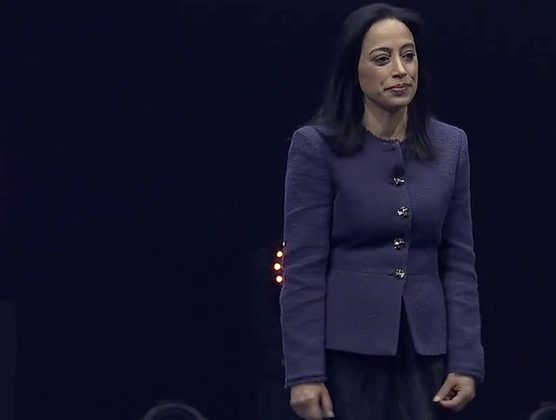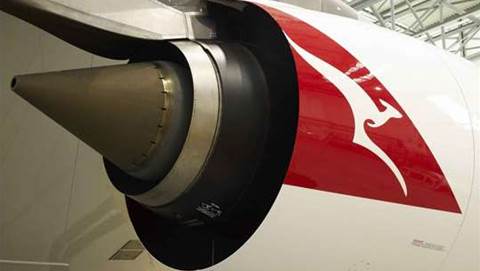QBE Insurance Group has a “multi-lever” transformation underway, with technology investments driving improvements to date but leadership and startup culture set to play an even bigger role.

Speaking at the GuideWire Connections conference, the group’s Sydney-based chief transformation officer Sushma Segal characterised QBE’s transformation agenda as being “business-led” and agile.
“As long as technology continues to evolve, our businesses will need to evolve,” Segal said.
“The reality is that many of us will be digitally transforming our businesses for the rest of our careers and successful businesses will be those that figure out how to transform.
“This is where leaders … play a very important role.”
Segal said that the role of leaders around transformations is shifting.
“In the past, the job of leadership was very much about managing deliverables. Now it's about empowering our teams,” she said.
“We need to create the space for innovation. We need to coach through uncertainty. We need to empower our teams closest to the customers to find the solutions.”
At QBE, that is materialising in several ways.
Segal said there is a leadership course internally called ‘Leading Change Through Uncertainty’ that specifically seeks to prepare leaders for the shift.
QBE’s transformation agenda is also “being led by our frontline teams.”
“They're the people that are closest to our customers and our partners,” Segal said.
“They see what our customers need and they understand how risk is evolving. Their insights shape our priorities around being easy to do business with, being expert risk partners, being agile in our products and pricing, and building our future fit workforce.
“That's all enabled through making sure that they've got the tools, the technologies, the skills and our ability to scale that across our regions.”
Segal outlined a number of technology investments that QBE had made under the transformation to date.
“We are rebuilding our core insurance platforms, we're investing in our data foundations to improve the speed to market for new products [and] to become more granular in our pricing,” she said.
“We're also thoughtfully investing in Gen AI…[and] focused on enabling our claims teams. An example of that is detecting stress in calls, so that we can navigate and triage those calls to the right teams within the business to support them.
“[Additionally] we're seeking to address underinsurance through investing in geospatial analytics to better understand property risks and we are investing and learning from startup organisations who are looking to address the industry's largest challenges.”
Segal said the enablement piece is also coming together.
“Our industry is getting smarter,” she said.
“We've got some incredible talent within our industry and the investments that we're making in terms of enabling them to do their best - in terms of technology, in terms of data foundations, giving them skills in AI so they can actually lead the future, will enable us not to simply catch up, but to leapfrog [where we are today].”
Segal said that complexity had become a problem in many organisations, not just in the insurance sector, as they grew in size.
“As our organizations grow, hierarchy builds, structures get put into place – and that's to manage large teams. We put up standards and that's to manage risk, but often this comes at a cost,” she said.
“Functions become separated, so you might have marketing here, legal there, operations somewhere else. Governance builds; silos harden.
“What was once a network that was fully focused around the customer becomes fragmented. Opportunities surface, they don't get acted upon. Ideas get brought to life, but they get stuck in process queues and the energy in the hierarchy gets lost.
“For a particular solution, now you might have design, development, testing, production, maintenance, all operating as separate functions, all with their own leaders, all with their own objectives and all with their queues.
“What actually emerges as a solution often has lost its connection with the customer. So these silos in our large organisations dramatically reduce agility and customer impact.”
Segal suggested that large organisations could learn a lot from startup culture.
“In my view, we need to act more like startups,” she said.
“At QBE, how we are thinking about this is by adopting startup principles where it counts, and that's for speed, for innovation and for agility, supporting our customers, but embracing scale where it matters, and that's [for] depth, reach and resilience.”
Creating a new breed of leader to support this is equally important.
“The most important ingredient to success is our leadership and how we lead through this change,” Segal said.
“We no longer have time for long development cycles. We need to foster a culture that enables our teams to pursue micro changes up and down the organisation to drive a true transformation - and that only happens if we as leaders operate differently.”




_(23).jpg&h=140&w=231&c=1&s=0)
_(36).jpg&h=140&w=231&c=1&s=0)





 iTnews Executive Retreat - Security Leaders Edition
iTnews Executive Retreat - Security Leaders Edition
 iTnews Cloud Covered Breakfast Summit
iTnews Cloud Covered Breakfast Summit
 The 2026 iAwards
The 2026 iAwards












_(1).jpg&h=140&w=231&c=1&s=0)



